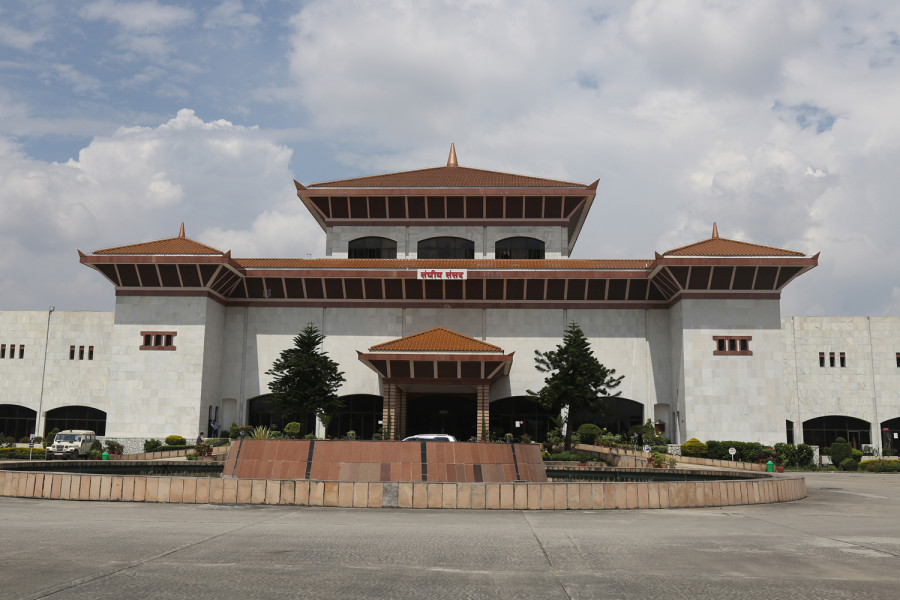Editorial
No snooping here
The Oli government’s baby steps towards totalitarianism must grind to a halt right away.
This has been a season of controversies in Parliament. While the amendment to the Citizenship Act and the updating of Nepal's political map dominated public discourse, a sinister plan to curb individual freedom of citizens through another bill unfolded quietly in Parliament. Having made it way through the Upper House, the Nepal Special Service Bill has now been stuck in the Lower House. Among other things, the bill has a provision that allows intelligence officials to intrude into the privacy of any individual in the country without seeking permission from the court.
As per Clause 10 of the bill, 'audio or audiovisual conversations at the individual or institutional level that are suspicious can be kept under surveillance, monitored or intercepted’. The government deems it necessary to control acts of 'secession, espionage, sabotage and subversion' and to 'protect national sovereignty, national integrity and communal harmony'. In principle, the government’s logic does not sound that bad. But in reality, the provision ends up creating a surveillance state. Rather than curbing crimes, a surveillance state is more interested in putting political dissidents and rights activists under constant watch. This means the curtailing of political rights and freedoms of individuals.
There’s no dearth of reports that show how surveillance equipment such as CCTV cameras increase people’s sense of anxiety and help create a surveillance state rather than making society more secure. Even the presence of CCTV cameras around us is enough to make us feel that our actions are being recorded and analysed, notwithstanding the fact that those actions might be as trivial as drinking a cup of tea or reading a book. A surveillance state gives a free hand to intelligence officials to keep watch on any individual and institution and intrude into their privacy, effectively breaching the constitutional rights to privacy on many levels. The suspicion that authorities might be watching our activities secretly is enough to cripple us psychologically.
The bill underway in Parliament does more than just that: it gives the intelligence agency the authority to record and listen to telephone conversations and intercept messages to use them as evidence against an individual. Although the bill has a provision of seven years of imprisonment for authorities who misuse the information to target individuals, the idea of victims being able to take legal action against the authorities sounds like a far-fetched dream.
Thirty-one lawmakers from the opposition parties, including the Nepali Congress, Samajwadi Party and Rastriya Janata Party, have filed a plea to amend the bill, terming it a violation of the constitutional provision of individual rights to privacy. The Lower House is set to send it to the parliamentary State Management Committee for further discussion on the amendment proposal on Wednesday. Though this is a slightly positive development, lawmakers from the ruling Nepal Communist Party may still try to hector their way through the process on the back of their majority position. As the government prepares to recommend the prorogation of the ongoing session of the federal Parliament due to fears of Covid-19 transmission, the bill, along with other crucial bills, is certain to be pushed to the next session. But its provisions need a sustained critique so that lawmakers realise that the attack on individual rights to privacy is unacceptable and that the provisions in their current form have no place in a democratic republic.



 14.24°C Kathmandu
14.24°C Kathmandu














